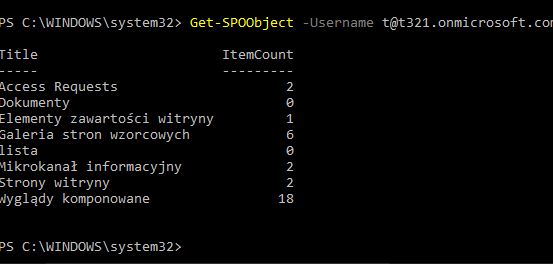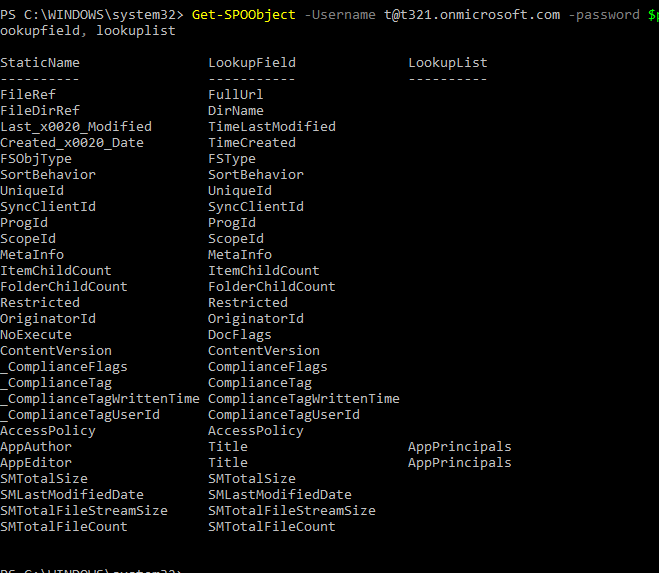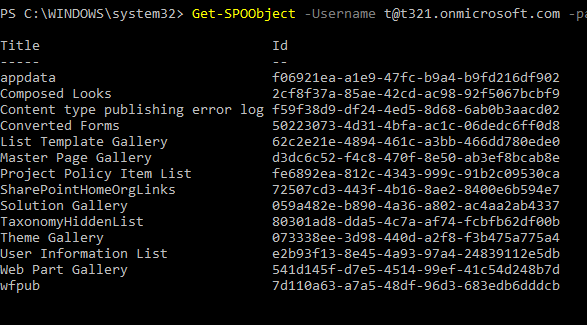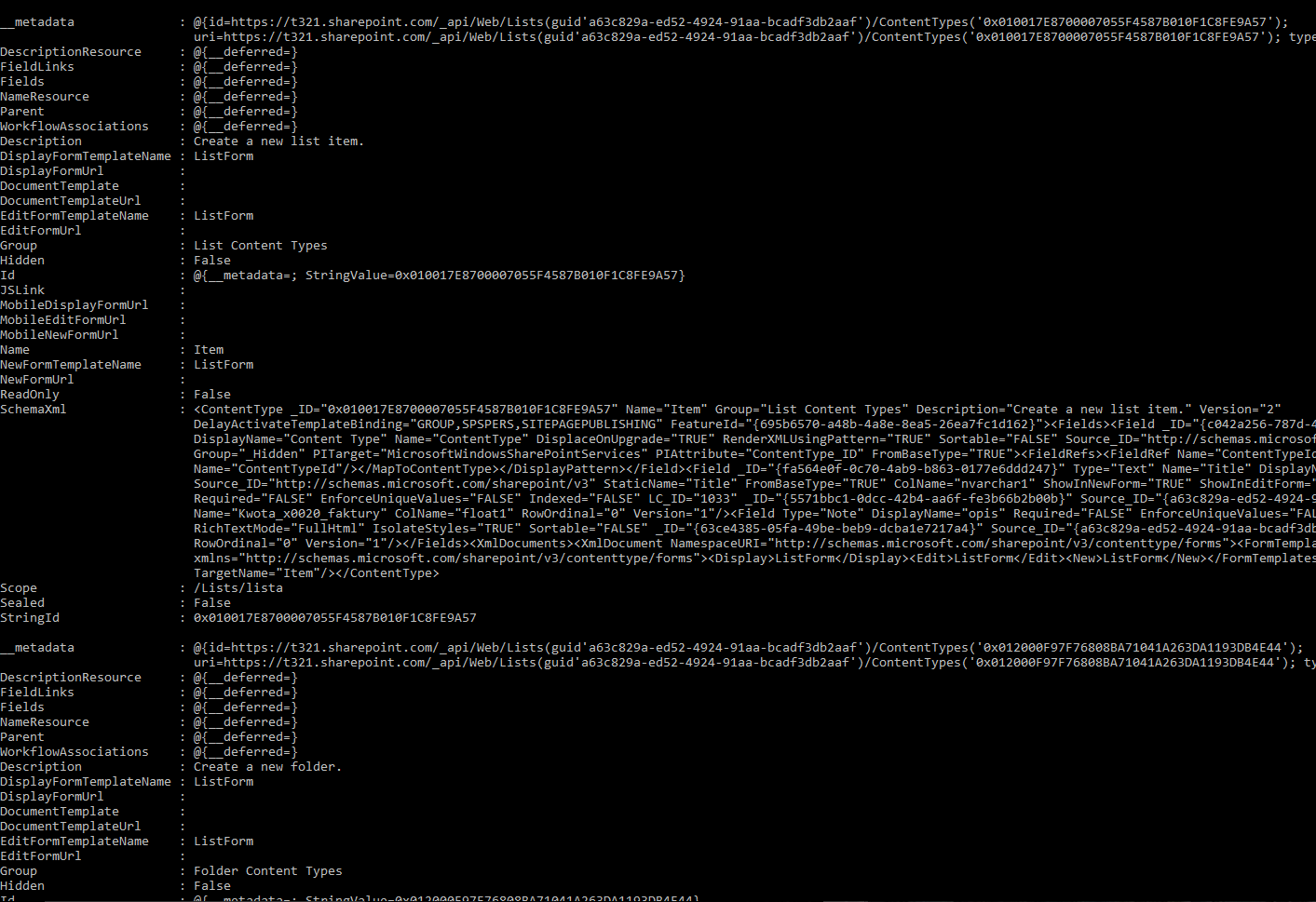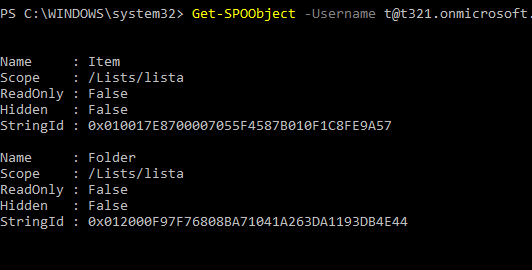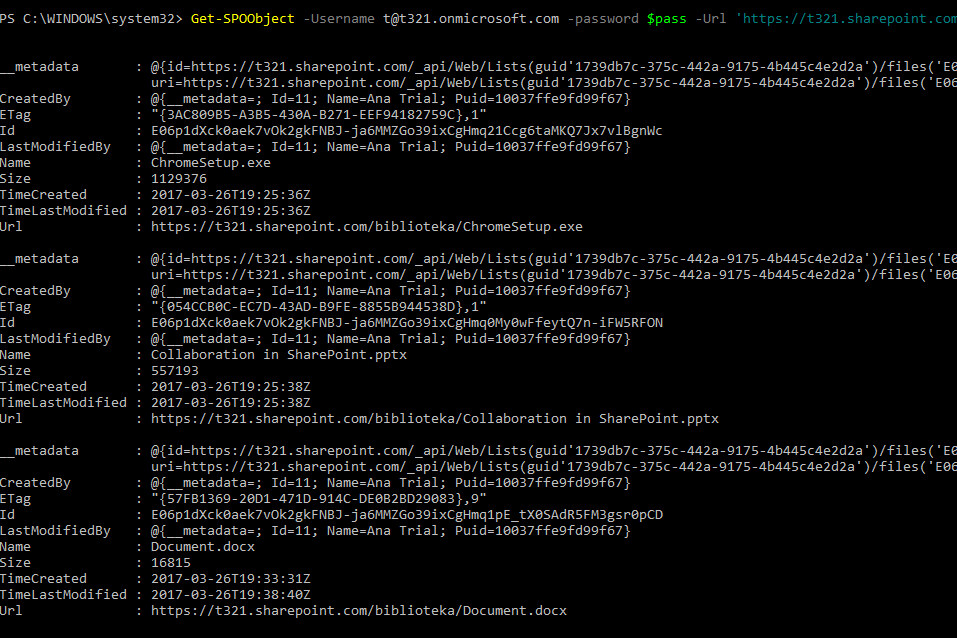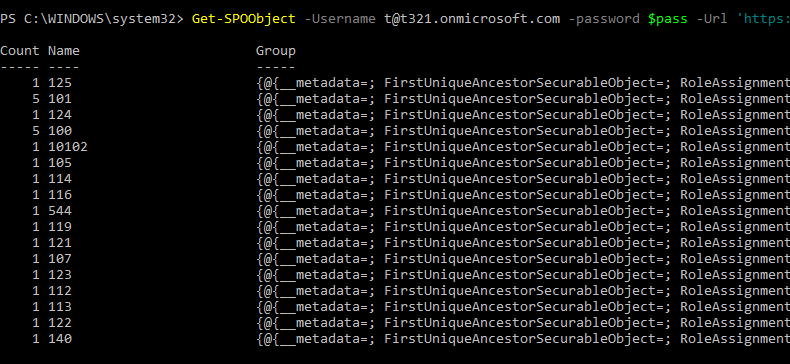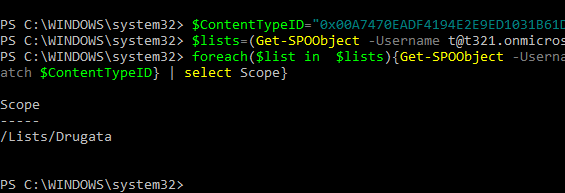Note
Access to this page requires authorization. You can try signing in or changing directories.
Access to this page requires authorization. You can try changing directories.
The examples below require a PowerShell module available here on TechNet Gallery.
As discussed in Get any SharePoint Online object with Powershell, REST API endpoints allow us to interact with sites remotely. The examples below use these possibilities and together with a single cmdlet from a PowerShell module pull useful data, troubleshoot your tenant and create reports in a way that is not possible with SharePoint Online Management Shell.
Lists
Get the number of items in every list
Get-SPOObject -Username t@t321.onmicrosoft.com -password $pass -Url "https://t321.sharepoint.com/polski" -Object "web/lists" | select title, itemcount
or
Get-SPOObject -Username t@t321.onmicrosoft.com -password $pass -Url 'https://t321.sharepoint.com' -Object 'web/lists?$select=title,itemcount'
Get all hidden columns in a list called "lista"
Get-SPOObject -Username t@t321.onmicrosoft.com -password $pass -Url "https://t321.sharepoint.com/polski" -Object "web/lists/getbytitle('lista')/fields" | where {$_.Hidden -eq $true} | select staticname, id
Get all columns visible to the users in a list called "lista"
Get-SPOObject -Username t@t321.onmicrosoft.com -password $pass -Url "https://t321.sharepoint.com/polski" -Object "web/lists/getbytitle('lista')/fields" | where {$_.Hidden -eq $false} | select staticname, id
Get all lookup columns in a list
Get-SPOObject -Username t@t321.onmicrosoft.com -password $pass -Url "https://t321.sharepoint.com/polski" -Object "web/lists/getbytitle('lista')/fields" | where {$_.TypeAsString -eq "Lookup"} | select staticname, lookupfield, lookuplist
Get all hidden lists
Get-SPOObject -Username t@t321.onmicrosoft.com -password $pass -Url 'https://t321.sharepoint.com' -Object 'web/lists' | where {$_.Hidden -eq $true } | select title, id
Get all list content types
Get-SPOObject -Username t@t321.onmicrosoft.com -password $pass -Url 'https://t321.sharepoint.com' -Object "web/lists/getbytitle('lista')/contenttypes"
Get-SPOObject -Username t@t321.onmicrosoft.com -password $pass -Url 'https://t321.sharepoint.com' -Object "web/lists/getbytitle('lista')/contenttypes" | select name, scope, readonly, hidden, stringid
Libraries
Get all files from the library
Get-SPOObject -Username t@t321.onmicrosoft.com -password $pass -Url 'https://t321.sharepoint.com' -Object "web/lists/getbytitle('biblioteka')/files"
Get files greater than and export their names to a CSV
Get-SPOObject -Username t@t321.onmicrosoft.com -password $pass -Url 'https://t321.sharepoint.com' -Object "web/lists/getbytitle('biblioteka')/files" | where {$_.Size -gt 500000} | export-csv c:\files.csv
Find the number of lists per templates
Finds how many tasks lists, how many surveys, how many custom lists or how many libraries there are:
Get-SPOObject -Username t@t321.onmicrosoft.com -password $pass -Url 'https://t321.sharepoint.com' -Object "web/lists/" | group basetemplate
Find lists or libraries with a certain content type
$ContentTypeID="0x00A7470EADF4194E2E9ED1031B61DA08840300354E22580AD3B14AB07D9B324713A872"
$lists=(Get-SPOObject -Username t@t321.onmicrosoft.com -password $pass -Url 'https://t321.sharepoint.com' -Object "web/lists")
foreach($list in $lists){Get-SPOObject -Username t@t321.onmicrosoft.com -password $pass -Url 'https://t321.sharepoint.com' -Object ("web/lists/getbytitle('"+$list.Title +"')/contenttypes") | where {$_.StringId -match $ContentTypeID} | select Scope}
Downloads
- Module for getting SharePoint Online objects with Powershell (limited)
- Module for getting SharePoint Online objects with Powershell
- Module for getting SharePoint Online objects with Powershell (unrestricted) - used in this article
